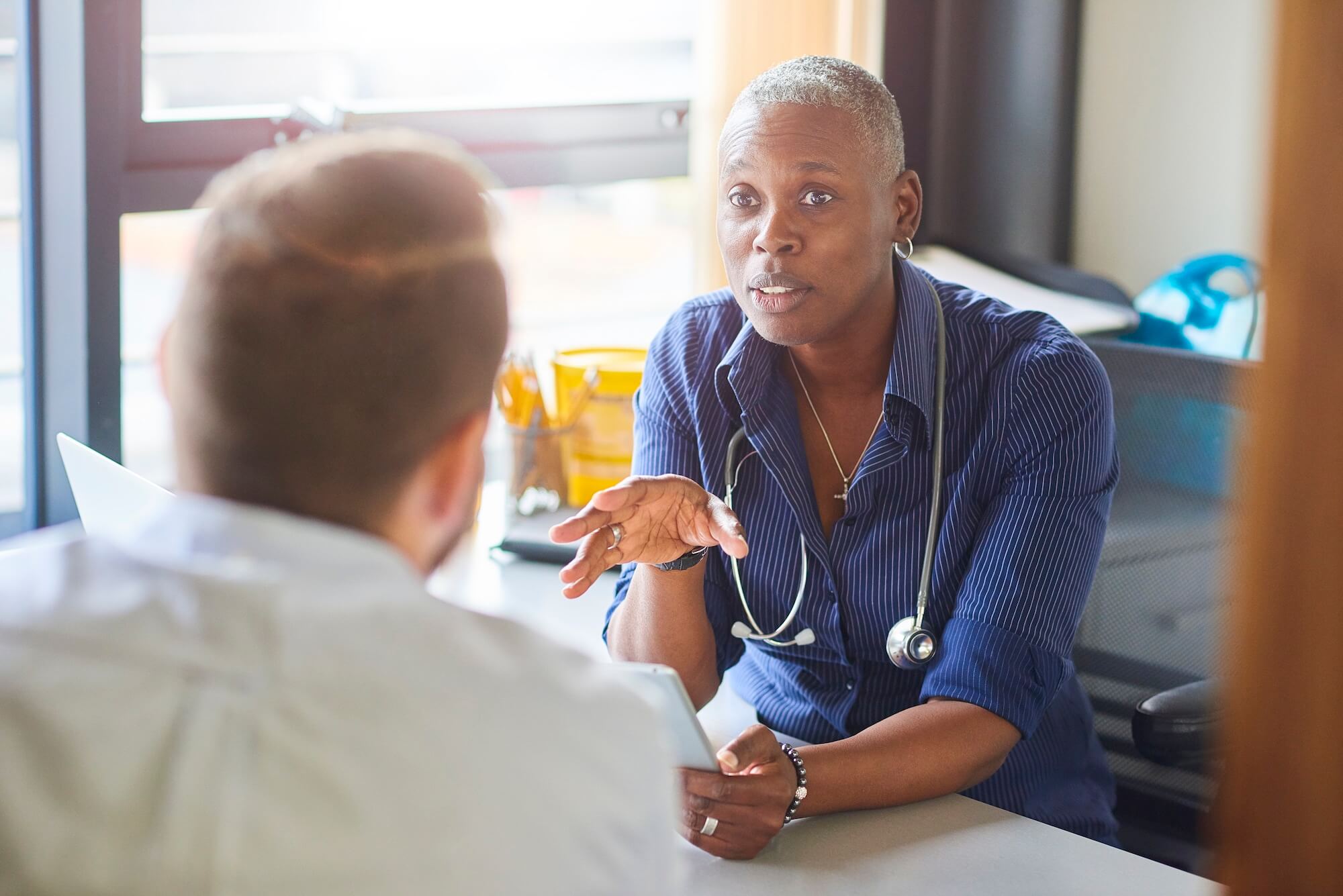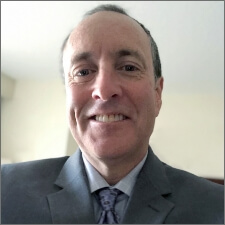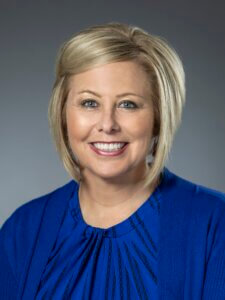

Dr. Dominic Borgialli
As critical access points for people with opioid use disorder (OUD), Michigan emergency departments (ED) treat more than 25,000 opioid-related visits annually. Those seeking care are particularly vulnerable once they are discharged. “It’s frustrating to have a patient who truly wants to stop using an opioid but has no place to go for help, or a gap exists between leaving the emergency department and getting into treatment,” says Dr. Dominic Borgialli, an attending physician in the ED at Hurley Medical Center in Flint. “That gap creates a high risk for relapse, and someone will withdraw and use again.”
Hurley received funds from the Community Foundation for Southeast Michigan’s Michigan Opioid Partnership to strengthen its medication for opioid use disorder program in the ED, which includes a requirement to reduce OUD patients’ risks upon discharge by connecting them to outpatient services. Hurley worked with community-based partner New Paths, Inc. to design warm handoff protocols that ensure a seamless transition from emergency medical care to specialty treatment.

Erin McClelland
Erin McClelland, Director of Clinical Services with New Paths, Inc., describes the nonprofit organization as a long-standing treatment center primarily focused on substance use disorder. “Emergency departments were struggling with where to send people,” she says. “If a doctor, nurse, or social worker from the hospital calls, one of our recovery coaches will meet the patient within 30 minutes or less.” McClelland says this resource enables EDs to treat OUD patients more effectively by removing the burden on medical staff to find treatment options.
Chronic Disease Care Best Practice
Warm handoffs are transfers of care between members of a medical team that occur in front of the patient. They have proven effective in chronic care domains, especially when services are stigmatized or considered inaccessible. New Paths, Inc.’s team comprises therapists, case managers, laboratory technicians, and a medical assistant, but the peer recovery coaches factor prominently in the referral process.
Hurley’s providers and social workers identify people at all levels of OUD. “They may have overdosed, be in withdrawal, or simply want information about treatment,” says Dr. Borgialli. ED staff then contact New Paths, Inc. to request a recovery coach to meet with the patient and discuss treatment options. “The patient is handed off to the coach, who visits them in their room or wherever they are in the hospital, shares their story of hope, and tells the patient they’ve been in their shoes and that New Paths, Inc. can help them achieve their goals,” says McClelland. “They introduce the patient to different recovery pathways and follow them along the way.” New Paths, Inc. offers comprehensive services, such as recovery housing, a sobering facility, and residential, outpatient, and day treatment programs.
This year, New Paths, Inc. integrated MOUD into its roster of services, expanding the resources available to OUD patients. “COVID caused backlogs at some of the clinics we were referring patients to, and we were experiencing barriers with getting people medication,” according to McClelland. Establishing an onsite program minimized the backlog’s impact and streamlined the patient’s experience. “We can now connect people with OUD to a single source, with everything under one roof,” says Dr. Borgialli, who is also New Paths, Inc.’s medical director, a position he holds in addition to his duties at Hurley.
Challenges and Successes
McClelland says stigma is always a challenge, even though she has noticed more professionals opening their minds and being willing to learn about OUD as a disease. “Hearing the recovery coaches’ stories and seeing them use their lived experience to help others is schooling the medical community.”
McClelland points to the difficulty of retaining staff as another challenge. “Case workers, physicians, and other practitioners begin to burn out because what we do is never-ending, hard, and they don’t see success. I remind them to look at the peer coaches as examples of what our clients could accomplish.”
Dr. Borgialli identifies the number one success of Hurley’s program as getting patients into treatment immediately. He attributes this to the solid connection between the ED and New Paths, Inc.
“For the handoff to work, hospitals have to find community-based long-term care providers, which is difficult in a lot of communities,” he observes. “Making seamless referrals is key.”
Funding is another essential element. Greater Flint Health Coalition and Region 10 Prepaid Inpatient Health Plan (PIHP) are the primary funding sources for New Paths, Inc.’s peer recovery coaches.
“The other major success of our program is that we currently have medical students and residents from the University of Michigan and Michigan State University doing an addiction medicine rotation with me at Hurley.” Providing knowledge to the next generation of professionals on treating OUD excites Dr. Borgialli and brings attention to the program.
McClelland can recall numerous victories, including former clients who have achieved and maintained sobriety and are now working as peer recovery coaches. She is also proud that the model New Paths, Inc. designed with Hurley and other local health systems will become part of Genesee County’s quick response procedures. “As more people saw our work with the hospitals, they started to ask how the model could help law enforcement,” McClelland said. New Paths, Inc.’s coaches now receive referrals from first responders looking to connect OUD sufferers to treatment alternatives.
McClelland and Dr. Borgialli see opportunities to broaden and deepen partnerships. “Now that our protocols are in place to offer a holistic approach to OUD, we’re going to promote the program to the community,” Dr. Borgialli says. He envisions a comprehensive outreach effort that accepts referrals for warm handoffs from professionals working in criminal justice, mental health, the courts, clinics, and primary care.
